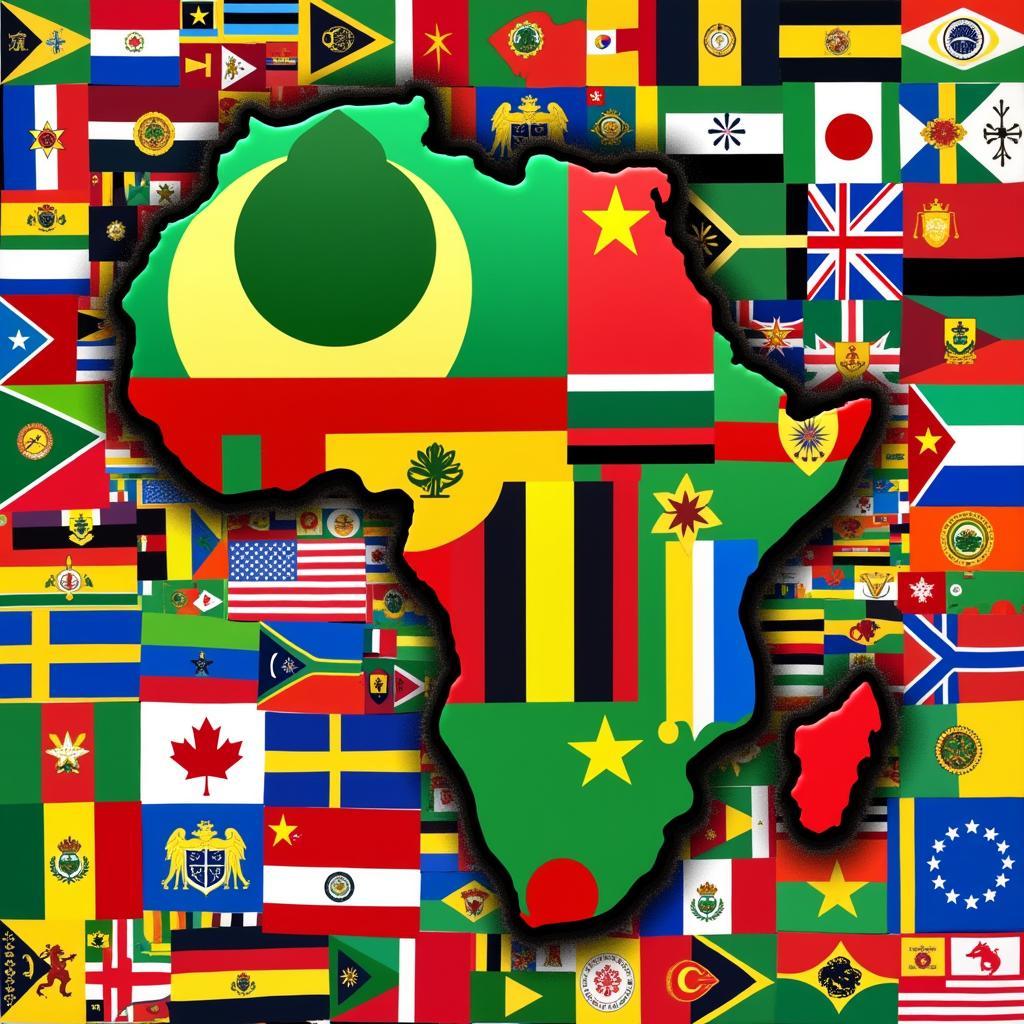Exploring the Vibrant World of African Children’s Literature
African children’s literature offers a rich tapestry of stories, poems, and folktales that reflect the diverse cultures, traditions, and languages of the continent. It’s a world waiting to be explored, full of captivating narratives that entertain, educate, and empower young readers. From ancient myths to contemporary stories, this vibrant literary landscape provides a unique window into the African experience.
The Power of Storytelling in African Children’s Literature
Storytelling has always played a central role in African cultures, serving as a powerful tool for transmitting knowledge, values, and history across generations. African folktales for children are particularly significant, often featuring animal characters with human-like qualities who teach important moral lessons. These stories not only entertain but also instill cultural pride and a sense of belonging in young minds. They offer a glimpse into the rich oral traditions that have shaped African societies for centuries.
Oral traditions remain vital, but written African children’s literature is increasingly important. This literature offers a unique opportunity to preserve and promote African languages and cultural heritage in a tangible form. Furthermore, it allows children to access these stories independently, fostering a love of reading and a deeper understanding of their own cultural identity.
Themes and Genres in African Children’s Literature
African children’s literature encompasses a wide range of themes and genres, reflecting the vastness and complexity of the continent. Common themes include family, community, resilience, and the importance of respecting nature. Many stories explore the challenges faced by children in contemporary Africa, such as poverty, conflict, and access to education. They also celebrate the strength, courage, and creativity of young people in overcoming these obstacles.
From fantastical adventures to realistic portrayals of daily life, African children’s literature offers something for every young reader. Picture books with vibrant illustrations bring traditional folktales to life, while chapter books delve deeper into complex social issues. Poetry and song lyrics capture the rhythm and beauty of African languages, enriching the literary landscape. There is a growing body of young adult fiction that tackles relevant issues and provides a platform for African teenagers to see themselves reflected in literature.
Discovering African Children’s Literature
With the growing interest in diverse literature, there are more resources than ever before for discovering African children’s literature. African children’s literature can be found in libraries, bookstores, and online platforms. Dedicated websites and blogs curate lists of recommended books and provide reviews.
Looking for an African folktale hare? Check Omenkamag! Several organizations promote African literature and literacy initiatives, offering valuable resources for educators and parents. By actively seeking out these resources, we can introduce children to the magic and wisdom of African stories.
Why is African Children’s Literature Important?
African children’s literature plays a vital role in shaping young minds and fostering a deeper understanding of African cultures. It empowers children by providing positive representations of themselves and their communities, promoting self-esteem and cultural pride. By exposing children to diverse perspectives and experiences, African children’s literature fosters empathy, tolerance, and a global mindset.
“African stories have the power to connect us to our roots and inspire us to dream big,” says Anika Njau, a Kenyan author and storyteller. “They remind us of the importance of community, resilience, and the beauty of our shared humanity.”
African folktales book helps preserve cultural heritage and languages. “Through literature, we can keep our traditions alive and pass them on to future generations,” adds Chinua Achebe, a renowned Nigerian writer, “Stories are a powerful way to transmit knowledge, values, and cultural identity.”
Conclusion
African children’s literature is a vibrant and essential part of the global literary landscape. It offers a unique window into the diverse cultures, traditions, and experiences of the African continent. By embracing and celebrating these stories, we can empower young readers, promote cultural understanding, and foster a love of reading that will last a lifetime. Continue exploring African children’s literature – you’ll find it is a treasure trove of captivating narratives.
FAQ
-
Where can I find African children’s books? Check local libraries, bookstores, and online retailers like african american bookstores online.
-
What are some popular themes in African children’s literature? Common themes include family, community, resilience, and respect for nature.
-
Why is it important to read diverse literature? Diverse literature exposes children to different perspectives, fosters empathy, and promotes cultural understanding.
-
How can I support African authors and publishers? Buy their books, share their work with others, and attend literary events.
-
Are there resources for educators interested in incorporating African children’s literature into their classrooms? Yes, many organizations offer resources and workshops for educators.
-
What are some examples of classic African folktales? Anansi the Spider, The Tortoise and the Hare, and Sundiata: An Epic of Old Mali.
-
How can I learn more about African children’s literature? Research online, visit libraries, and connect with organizations promoting African literature.
Further Exploration
Explore other articles on our website related to African culture, storytelling, and children’s books. Discover more folktales, author interviews, and educational resources.
When you need assistance, please contact us: Phone: +255768904061, Email: [email protected] Or visit us at: Mbarali DC Mawindi, Kangaga, Tanzania. We have a 24/7 customer service team.

